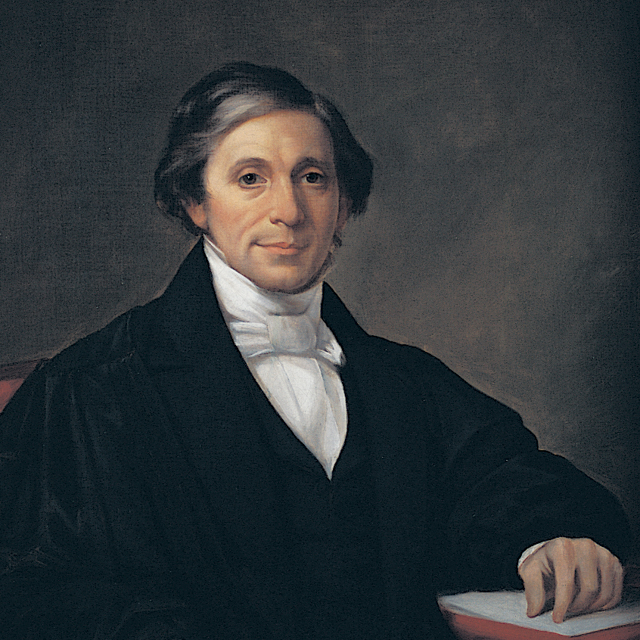William Greenleaf Eliot Jr., Washington University’s co-founder, benefactor and third chancellor, was born in New Bedford, Massachusetts in 1811, into a prominent New England family.
His great-grandfather was the minister in Boston’s Old North Church who was once offered the presidency of Harvard. His father was a merchant and ship owner who later became chief examiner of the Post Office in Washington, D.C.
Eliot entered Harvard Divinity School in 1831 where he developed his religious belief in a form of Christianity known as Unitarianism. He came to St. Louis in 1834 as a Unitarian missionary and by 1837 had built his first church, the Church of the Messiah. As his church grew, so did Eliot’s stature as a civic leader, serving as president of the St. Louis school board and founder of the Academy of Sciences of St. Louis, as well as being an early supporter of temperance and women’s suffrage. On a visit to St. Louis, Ralph Waldo Emerson had met Eliot and called him “the Saint of the West.”
In the beginning of every enterprise we should know, as distinctly as possible, what we propose to do, and the means of doing it.…We should also make up our minds…whether it is, upon the whole, worth the doing, and if so, whether it is our part to do it.…The enterprise which we now contemplate is one of this sort. It is not only the beginning of a great work, capable of indefinite extension, but each step in its progress and the first step in its commencement involve the sacrifice both of time and money.
William Greenleaf Eliot Jr., Address to the board of Washington Institute, February 22, 1854
In 1853, Eliot and his friend and parishioner Wayman Crow co-founded Washington University, at first called Eliot Seminary by Crow. From the beginning, Eliot was the university’s guiding spirit and tireless fundraiser, organizing the first fundraising campaign and building the young institution’s endowment. He became its first president in 1854, a position comparable to today’s board chair, and was named the university’s third chancellor in 1871.
During his chancellorship, the first women graduated, the first African-American was admitted, the School of Fine Arts was established, and the university celebrated its silver anniversary.
Not quantity but quality is the ultimate test of a university’s success.
William Greenleaf Eliot Jr.
William Greenleaf Eliot, scholar, literary figure, civic leader, social reformer and educator, died on January 23, 1887, after a lengthy illness. Throughout his life, Eliot championed the cause of education.
His vision, ideals, and aspirations continue to inspire the Washington University community today.
Notable dates
1870: The Board of Directors named Eliot interim chancellor, and in 1871 he agreed to serve as chancellor.
1871: Stove manufacturer and railroad president Hudson Bridge gave $100,000 in gold securities to endow the chancellorship, which was renamed the “Hudson E. Bridge Chancellorship.”
1873: Mary Josephine Rychlicki and Ada Calista Fisher became the first two women to graduate from the College.
1878: Student Life succeeded Irving Union as the student-run publication.
1879: The board voted to create a School of Fine Arts under the direction of Halsey C. Ives.
1881: The Manual Training School opened in a new building, funded in part by Samuel Cupples.
1882: The university, on the 25th anniversary of its inauguration ceremony, had 1,486 students and 87 professors.
